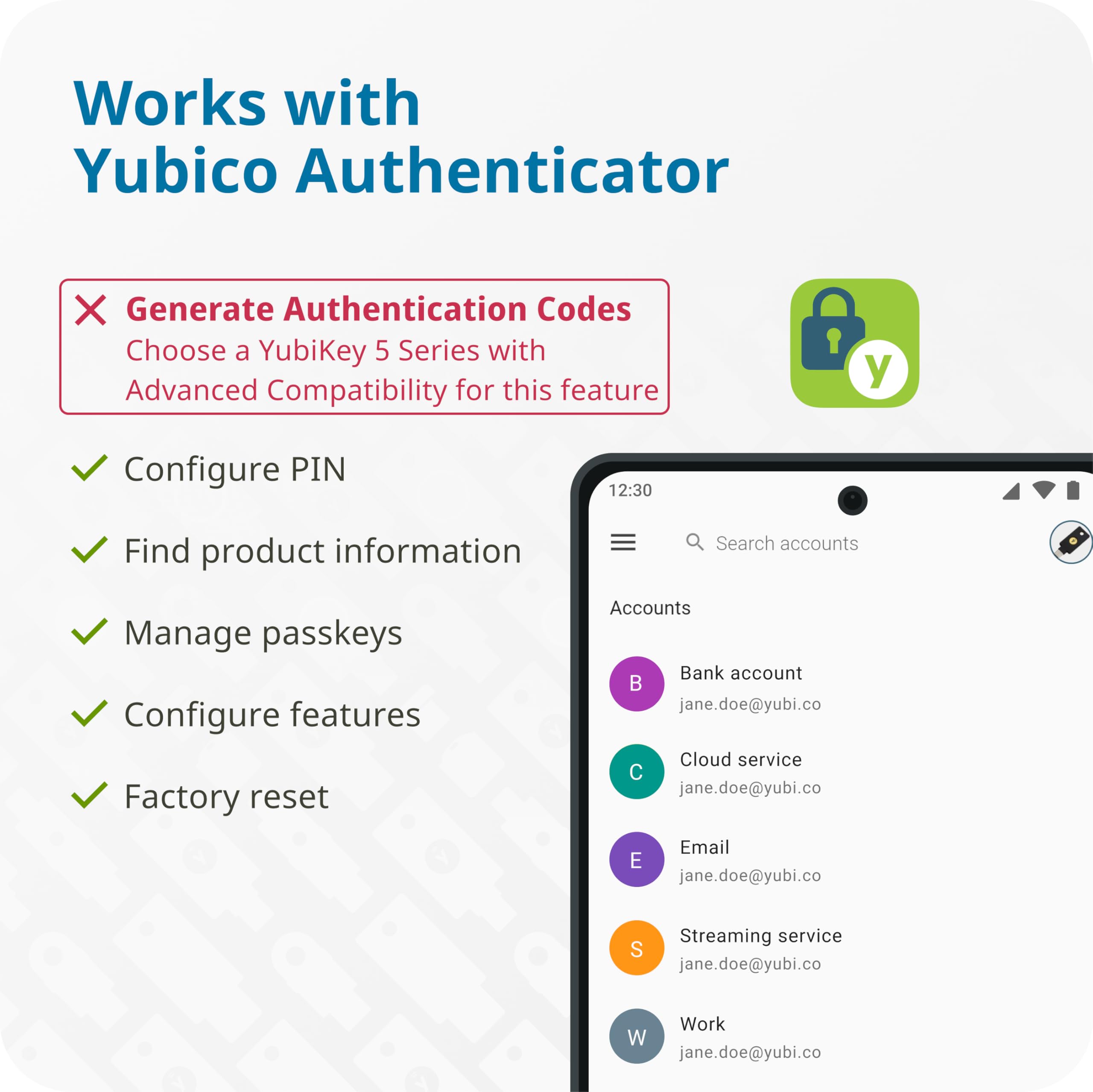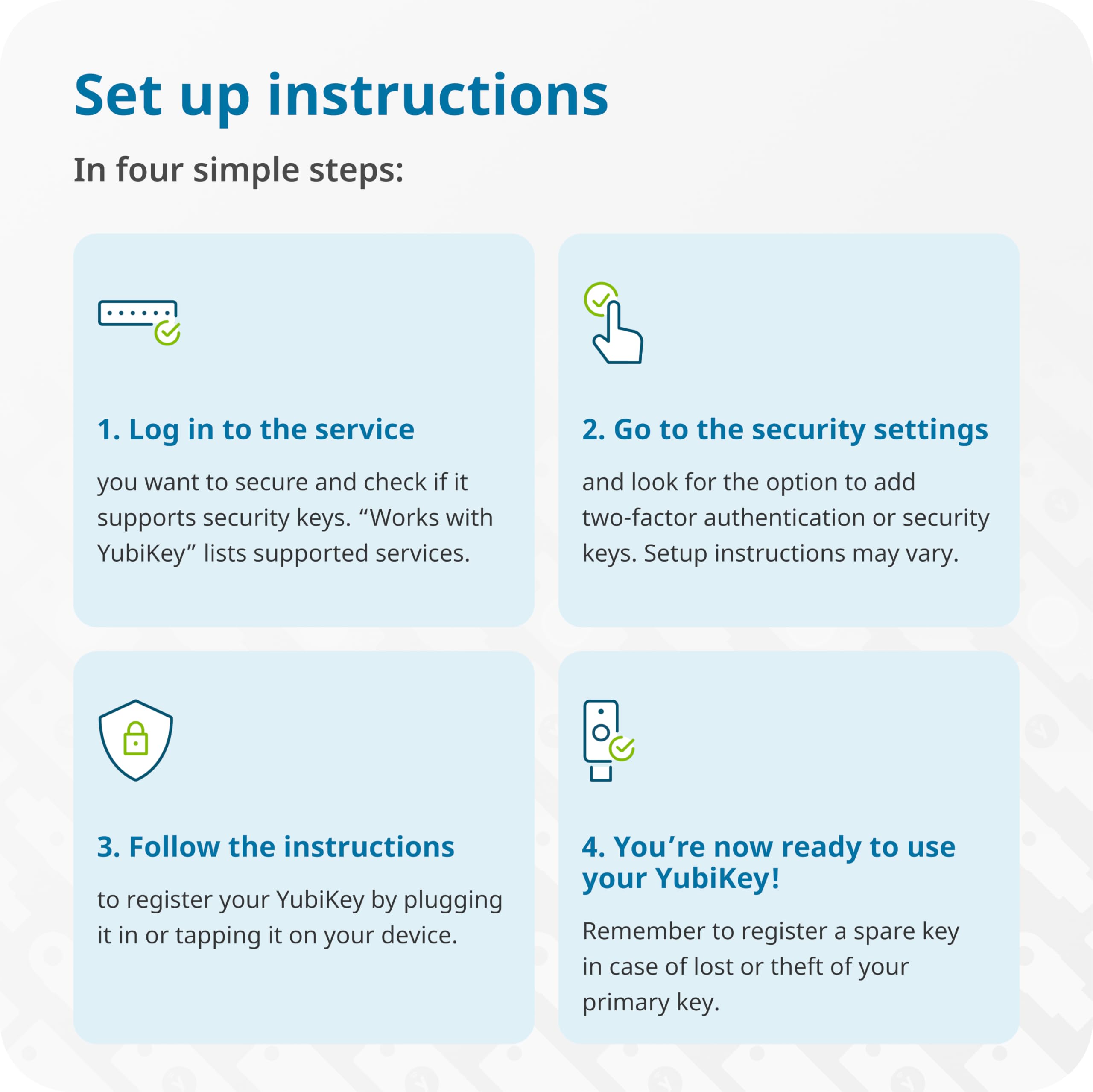Kundendienst
Copyright © 2025 Desertcart Holdings Limited
Desert Online General Trading LLC
Dubai, United Arab Emirates











🔑 Unlock your digital fortress with effortless security.
The Yubico Security Key NFC is a compact, FIDO2 and U2F certified multi-factor authentication device that connects via USB-A or NFC. Compatible with over 1000 accounts including major platforms like Google and Apple, it offers fast, phishing-resistant login without batteries or internet. Built tough with waterproof and crush-resistant materials, this security key is designed for everyday reliability and peace of mind.










| Model Name | Security Key |
| Product Dimensions | 3.94"D x 3.94"W x 3.94"H |
| Flash Memory Type | USB |
| Manufacturer | Yubico |
| Hardware Connectivity Technology | USB Type A |
| Global Trade Identification Number | 05060408465295 |
| Hard Drive | 16 GB Portable |
| Item model number | 5060408465295 |
| Item Weight | 0.353 ounces |
| Item Dimensions LxWxH | 3.35 x 2.17 x 0.04 inches |
| Hard Drive Interface | USB 1.1 |
| ASIN | B0BVNPWPCN |
| Date First Available | January 24, 2023 |
TrustPilot
vor 2 Wochen
vor 1 Monat